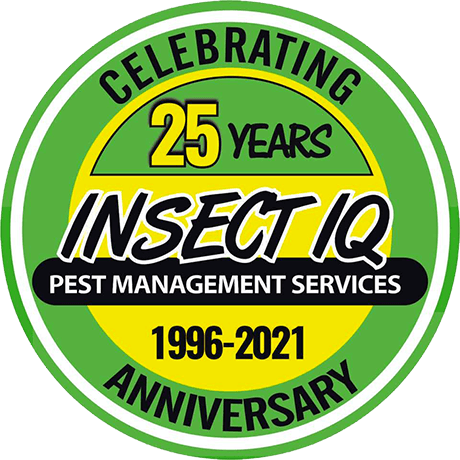Blog Layout

It’s the question on everyone’s minds this holiday season:
Should I cut down a real Christmas tree or buy a fake one?
Freshly-cut evergreen trees are beautiful and can make your home smell amazing, getting you in the Christmas spirit. But when you bring home a living tree, you are also inviting thousands of tiny insects that are hibernating inside the tree.
Keep in mind that when insects like ants and beetles overwinter into your festive, warm living space, they will wake up believing it is springtime. Check out our list below about the most typical insects in Christmas trees and how to make sure that they do not crash your celebration by taking preventative measures to de-bug your tree.
Here are some of them you may encounter:
Scale
Aphids
Mites
Sawfly Larvae
Spittlebugs
Weevils
Maybe a squirrel…
If you don't believe me ask Clark Griswold…

Steps to prevent a Christmas Surprise:
- Vacuum any insect on or around the tree.
- Put a white sheet under the tree and shake to dislodge any bugs
- Leave your Christmas tree in your garage for a few days
- When selecting your tree inspect the trunk and underneath branches.
- Treat the tree with soapy water, diatomaceous earth or neem oil to kill any bugs still there.
Insect IQ / Nutrilawn IQ has always been willing to identify Christmas tree arthropods free of charge. For more information contact us today, 855-930-2847.
From the entire staff here at Insect IQ/Nutrilawn we wish the happiest of holidays. Blessing to you and your family.
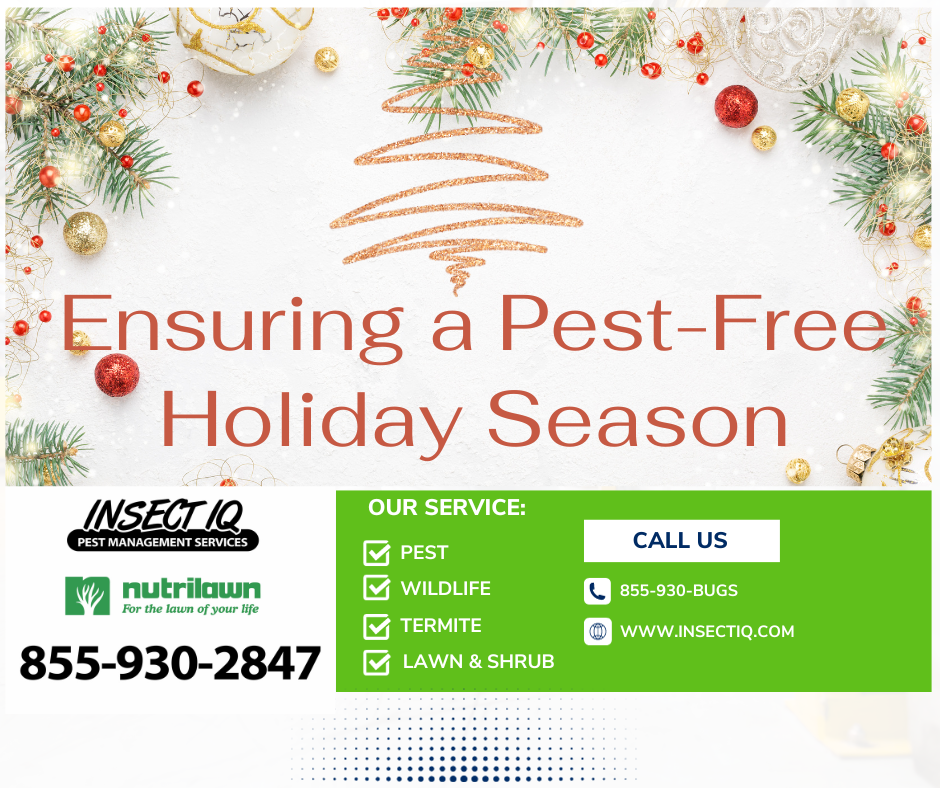
Insects and Rodents in Your Christmas Decorations Ensuring a Pest-Free Holiday Season with Insect IQ
By Jonathan Simkins
•
November 14, 2023
Ensuring a Pest-Free Holiday Season with Insect IQ The holiday season brings joy and festivities, but amidst the cheer lies a concern often overlooked – the potential for insects and rodents to join the celebration through your Christmas decorations. At Insect IQ, we're here to guide you through common pests that may infiltrate your holiday decor and provide essential tips on how to prevent and address this unexpected issue.
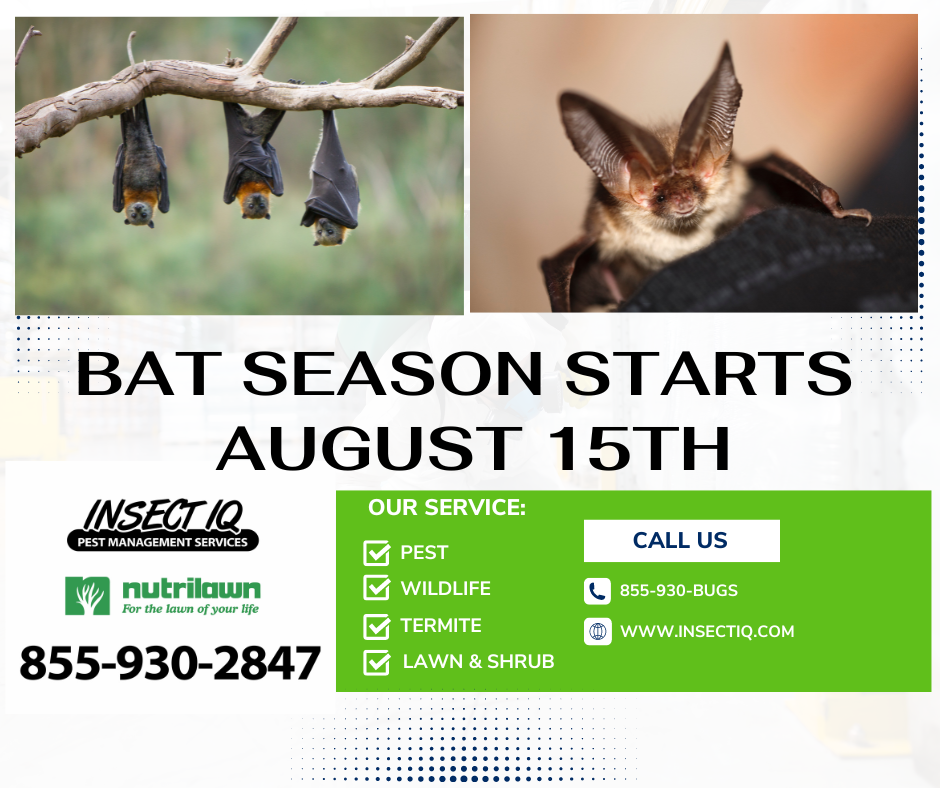
By Jonathan Simkins
•
August 28, 2023
Bat Season starts August 15th. We can help! The Florida Fish and Wildlife Conservation Commission (FWC) has set the official bat maternity season from April 15th through August 15th. During this time, it is prohibited to remove, harm or exterminate bats, as this is the time when female bats are raising their young ones, and removing them can lead to the separation of the young from their mothers, causing harm to both the mother and the young. The FWC recommends that if you have a bat infestation on your property, it's best to wait until the maternity season is over before taking any action. However, if there are urgent public health and safety concerns, then FWC recommends contacting a wildlife removal professional or the local FWC office to determine the best course of action. It is important to note that even during the maternity season, if a bat poses an immediate threat to human health or safety, it can be removed by a professional under certain conditions. What To Do If You Suspect Bats In Your House If you suspect rat or rodent activity, call a wildlife specialist for identification and next steps. Insect IQ has wildlife experts on staff to give you a free evaluation and help you determine what action (if any) you need to take to control your pest problem. For more information call 855-930-2847 (bugs). Or visit https://www.insectiq.com/our-services/wildlife-services for more information about wildlife services. LICENSE & CERTIFICATIONS DACS JB131270 Pest Control License Insect IQ DACS JF8248 1994 Certified Pest Control Operator #insectiq #bats #batbugs #bathouse #batnests #familyowned

By Jonathan Simkins
•
August 3, 2023
AT INSECT IQ We strive to improve the world where we live, work, and play by protecting people, public health, food, and property from the diseases and dangers of pests. We deliver pest management solutions to commercial and residential customers throughout the Tampa Bay Market. We are experiencing year-upon-year continued growth and innovation by solving our customers’ day-to-day pest management, wildlife, termite, lawn & ornamental pest control, and stinging insect solutions. Wildlife Specialist Wanted Insect IQ is seeking a full-time, career-oriented individual to join our team as a Pest Control Technician. The ideal candidate will be able to work independently and be self-motivated. Experience in the field is helpful, but we are willing to train the right person.

By Jonathan Simkins
•
August 3, 2023
AT INSECT IQ We strive to improve the world where we live, work, and play by protecting people, public health, food, and property from the diseases and dangers of pests. We deliver pest management solutions to commercial and residential customers throughout the Tampa Bay Market. We are experiencing year-upon-year continued growth and innovation by solving our customers’ day-to-day pest management, wildlife, termite, lawn & ornamental pest control, and stinging insect solutions. Wildlife Specialist Wanted Insect IQ is seeking a full-time, career-oriented individual to join our team as a Wildlife Technician. The ideal candidate will be able to work independently and be self-motivated. Experience in the field is helpful, but we are willing to train the right person.
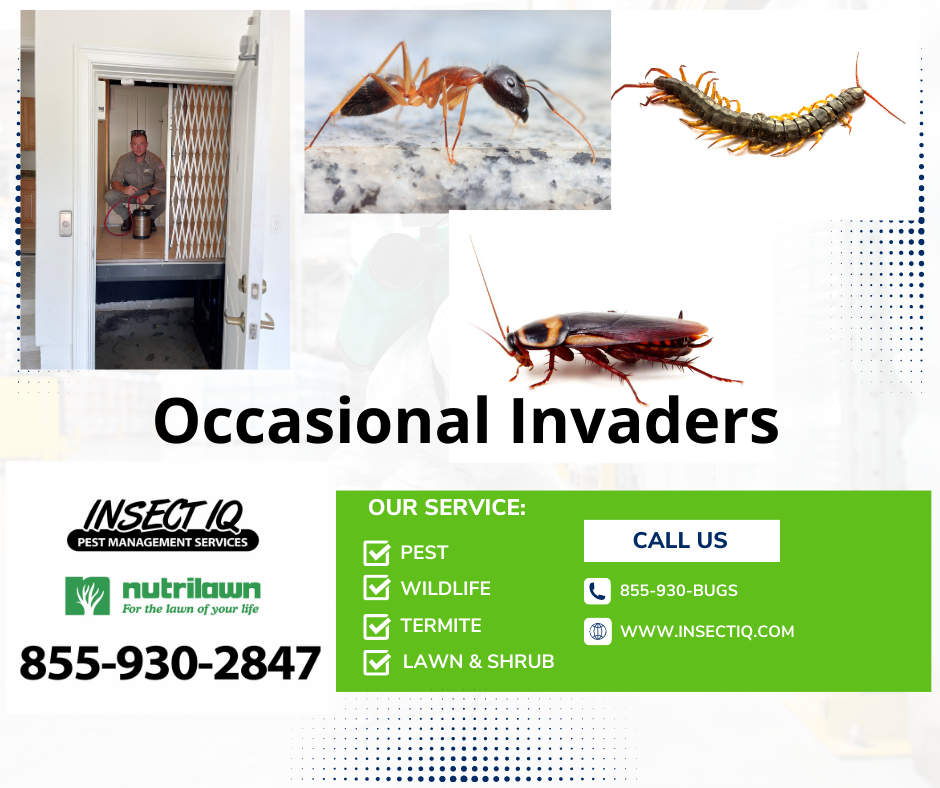
By Jonathan Simkins
•
July 23, 2023
What are occasional invaders and why do they enter your home? Britton Simkins notes that while many people in Florida are familiar with structural pests such as rodents, ants, cockroaches, and bed bugs, which infest and breed within buildings, there are also occasional invaders. These pests enter buildings on an infrequent basis, typically during specific months of the year, due to extreme weather conditions or accidental entry through small cracks and gaps in the building's structure. Occasional invaders are pests that invade buildings on an infrequent basis, usually during specific months of the year. They are not considered a major threat to humans, but their presence can be a nuisance. Examples of occasional invaders in Florida include millipedes, centipedes, silverfish, earwigs, crickets, and lady beetles, to name a few. Despite not being a significant threat, their presence should not be ignored, as it can indicate potential entry points for other pests. Occasional invaders typically enter buildings through small gaps or cracks in foundation walls, doorways, and windows, often attracted by lights and moisture. Once inside, they may feed on organic matter or seek shelter from the elements. In addition to being a warning sign for other pests, occasional invaders can also cause damage to property. For instance, silverfish and carpet beetles can damage fabrics and paper products, while millipedes and centipedes can stain walls and floors with their secretions. Therefore, it is important to take preventative measures to keep occasional invaders out of your building, such as sealing cracks and gaps in foundation walls, doors, and windows, and reducing moisture levels inside the building. By doing so, you can reduce the risk of an infestation by not only occasional invaders, but also other more harmful pests.
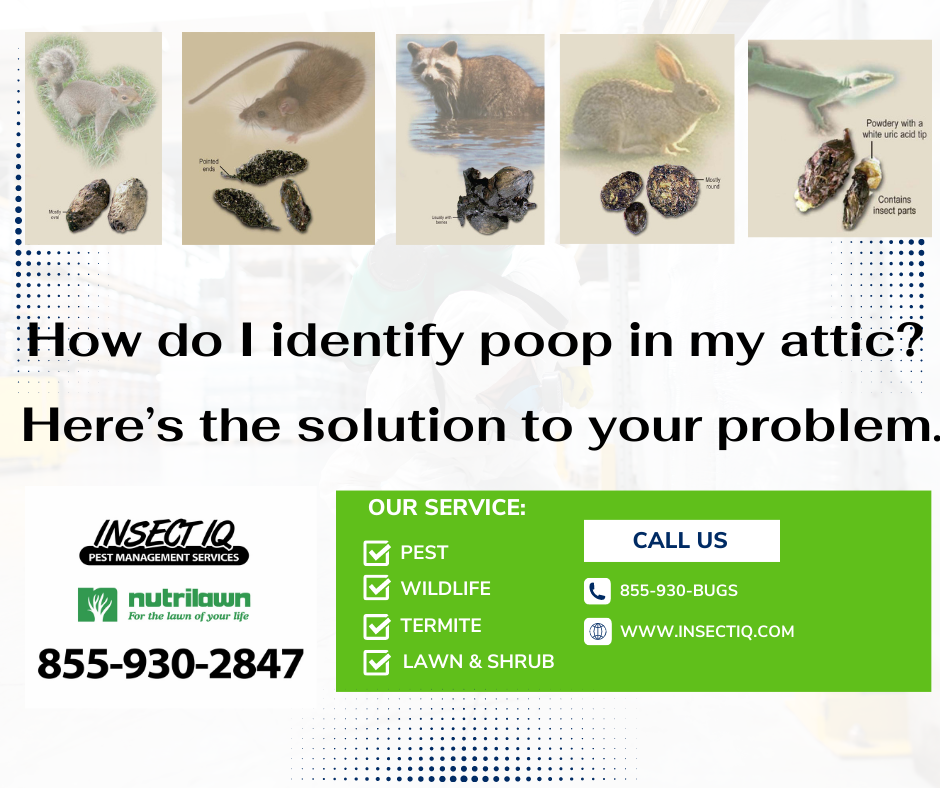
By Jonathan Simkins
•
July 17, 2023
Identifying animal feces, commonly referred to as scat, can be a task that requires some attention to detail. The appearance of feces can vary depending on the animal's diet, making it a slightly challenging task. However, by asking the right questions and taking necessary precautions, you can narrow down the potential suspects. Please note that engaging in scat identification comes with potential hazards . It is important to prioritize your safety. Droppings can be unsanitary and carry germs, so it is crucial to handle them with proper protection. Avoid direct contact and minimize breathing near the droppings. If you must handle them, use tools, gloves, and wear appropriate clothing. Dust-borne particles from droppings can also pose health risks.
Insect IQ has been serving Florida Clients that has been providing commercial pest control and a variety of pest control services since 1996. Our pest experts are licensed professionals and exceptionally trained.
Contact Us
You can always contact us via email, text, call or chat. If you need to schedule a visit or have a question about bugs or other stinging insects?. We are standing by 24/7 to help.
855-930-2847 (bugs)








